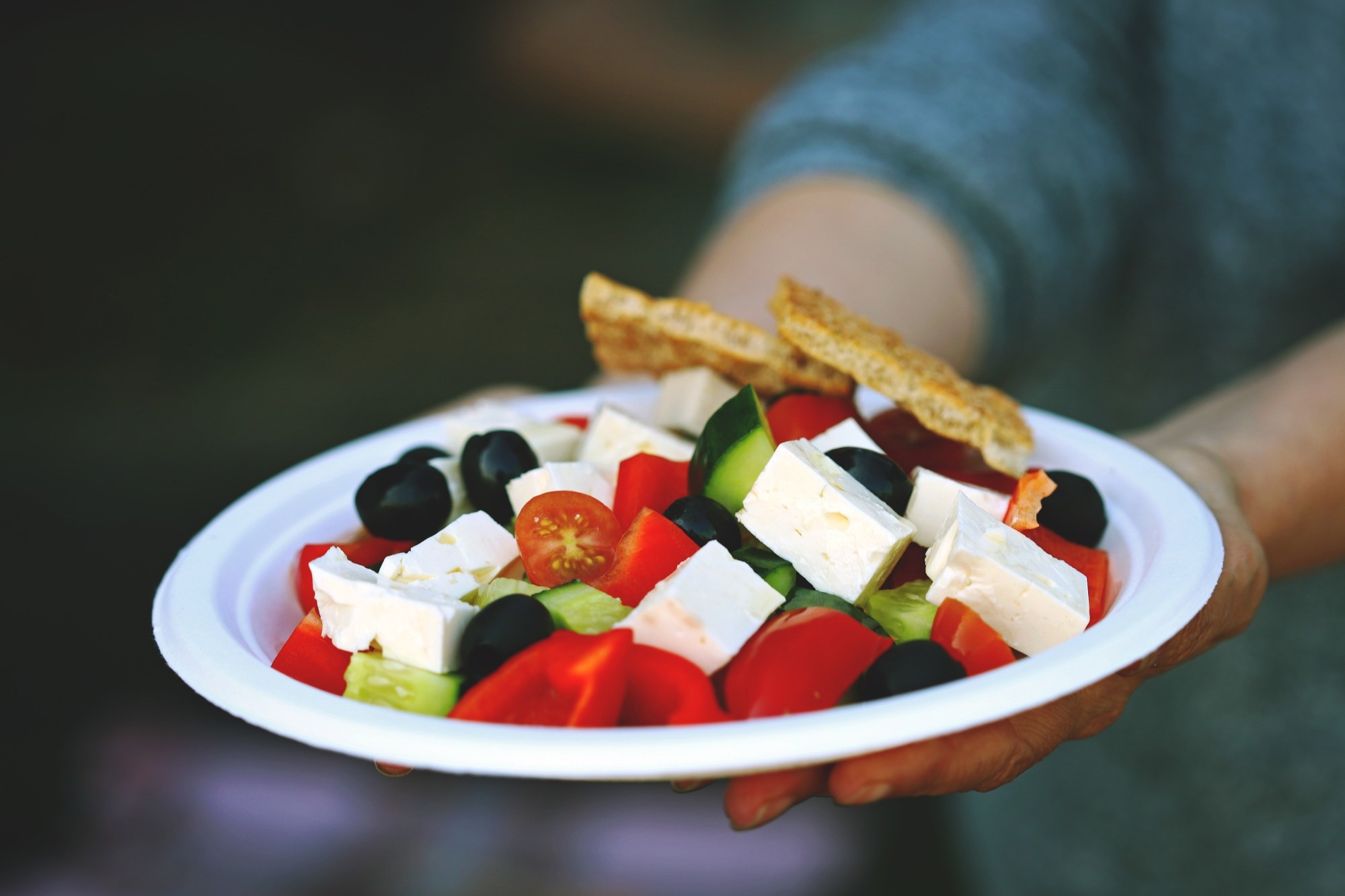Around 35% of women globally die from cardiovascular disease (CVD). The prevention of cardiovascular disease (CVD) relies heavily on dietary modification. Unfortunately, the vast majority of cardiovascular diet trials conducted in the past have been predominantly male or did not report gender-specific analyses. Furthermore, current prevention guidelines have no dietary recommendations specific to men or women.
In a new systematic review, scientists in Australia and the United Kingdom have analyzed the relationship between the Mediterranean diet and occurrences of CVD and death in women.
 Systematic review: Primary prevention of cardiovascular disease in women with a Mediterranean diet: systematic review and meta-analysis. Image Credit: Sunvic / Shutterstock
Systematic review: Primary prevention of cardiovascular disease in women with a Mediterranean diet: systematic review and meta-analysis. Image Credit: Sunvic / Shutterstock
Background
The Mediterranean diet is associated with high consumption of unprocessed plant foods, such as whole grains, vegetables, fruit, nuts, and legumes, a moderate intake of fish, and low consumption of red meat and processed food. It also allows low-to-moderate consumption of wine.
It must be highlighted that previous sex-specific analyses related to the influence of the Mediterranean diet on cardiovascular events and death have shown contradictory results. Therefore, there is a need for a meta-analysis to find out specific treatments effective to prevent CVD, particularly in women.
Considering this need, scientists performed and published a systematic review and meta-analysis in the journal Heart to determine the effect of the Mediterranean diet on the incidence of CVD and death in women.
About the Study
For the current review, scientists conducted a systemic search using Embase, Medline, Web of Science, Scopus, and CINAHL. The study included relevant articles on adult women with previous clinical or subclinical CVD. Prospective cohort studies and randomized controlled trials (RCTs) were included in this meta-analysis.
The authors used the traditional Mediterranean diet score (MDS), developed by Trichopoulou et al., to estimate the rate of adherence to the Mediterranean diet. A high MDS determined a higher Mediterranean diet adherence, and conversely. The incidents of CVD and death were considered primary outcomes, whereas coronary heart disease (CHD) and stroke were considered secondary outcomes.
Study Findings
A total of 7,173 articles were obtained from primary search, among which 3,101 duplicates were removed. After excluding articles that did not fit the current meta-analysis, sixteen articles were considered, published between 2006 and 2021.
The studies included in this review were prospective cohort studies that comprised a total of 7,22,495 female participants. These studies were predominantly conducted in the UK and Europe. The median follow-up period of these studies was 12.5 years.
It was observed that women with high adherence to the Mediterranean diet were at 24% lower risk of CVD and 23% of lower risk of mortality. The PREDIMED (Prevención con Dieta Mediterránea) trial, which was conducted to understand the impact of the Mediterranean diet on cardiovascular outcomes, revealed that participants who consumed extra virgin olive oil or nuts had a 31% lower risk of a cardiovascular event compared to control. Another meta-analysis revealed that the Mediterranean diet imparts similar benefits to both men and women, with a lower hazard of CVD and mortality.
The impact of the Mediterranean diet on stroke reduction in women could not be assessed due to a few studies related to secondary outcomes. However, sub-group analyses showed that the benefits of the Mediterranean diet were similar in European and non-European women.
Mechanistically, consumption of the Mediterranean diet lower cardiovascular events due to antioxidants and the microbial effects associated with interactions between cardiovascular risk factors and inflammation.
Also, components of the Mediterranean diet contain omega-3 fats, polyphenols, increased fiber, nitrates, and reduced glycaemic load, which aids in reducing the risk of cardiovascular events. Nevertheless, few studies evaluated the sex-specific effect of the Mediterranean diet on CVD and death.
The current study highlighted that the Mediterranean diet positively lowers CVD in women. However, a Mediterranean diet targeting specific inflammation and CVD risk factors, such as menopause, diabetes, and pre-eclampsia, could impose differential effects in men and women. Thus, more sex-specific studies are needed to investigate the effects of the Mediterranean diet on CVD.
Conclusions
A key limitation of the current study is its observational nature, relying on self-reported questionnaires, making it susceptible to bias. Additionally, some participant data were unavailable, and studies not featuring sex-disaggregated analyses were excluded. A third limitation is that important confounders, e.g., cardiovascular risk factors, varied across the included studies. Lastly, the definitions of MDS, the score range, and the cut-offs varied across studies.
Despite this, the study documented a protective association between adherence to a Mediterranean diet and CVD incidence in women. The results underline the need for future research to report sex-disaggregated analyses. Further, the dietary impact on stroke, female-specific cardiovascular risk factors, menopausal status, and ethnicity should be considered in future studies.